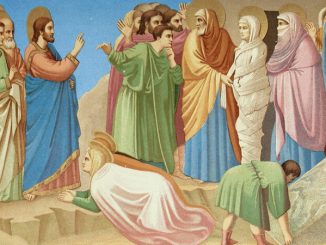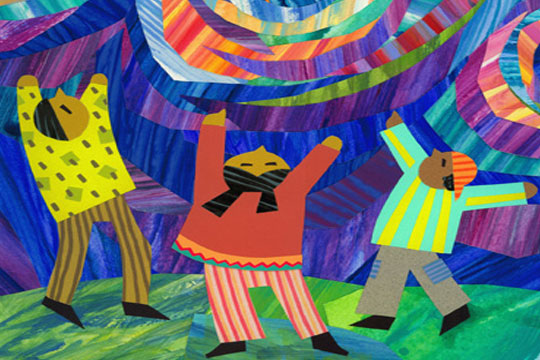
In a recent lesson about the saints, my third-grade faith-formation class wanted to know how people become saints. They asked about the process of canonization by which the Church names someone a saint. While describing the process, we got sidetracked talking about miracles. The kids weren’t sure that miracles actually happen anymore; some thought a miracle was something like a magic trick.
To help them see that miracles still happen in our world, I shared with the children the story of a woman named Bonnie. I had met her two years ago. Her son was born without a heartbeat and after 61 minutes of no pulse, he came back to life. His complete restoration to health without complications from being born without a heartbeat was investigated by the Congregation for the Causes of Saints and approved as an alleged miracle in the cause of Archbishop Fulton Sheen in 2014.
I related this story to the kids because I wanted them to know that miracles continue to happen in our world. Miracles are not just stories found in the Bible from Jesus’ life. There are unexplained medical miracles that give us signs of God working in our world.
I expected the children to be awed by this miracle story, but I was completely taken off guard by what happened next. One of the girls raised her hand and asked why God didn’t help her mom when she prayed. Why wasn’t there a miracle to save her baby sister when she died? My heart stopped. Immediately I was worried that this girl would think her prayers weren’t worthy of God’s answer or her family wasn’t “good enough” for God to grant them a miracle.
I’m not sure exactly what words came out of my mouth, but I remember telling her how sorry I was that her baby sister had died, and I remember offering to pray for her and her family.
My eyes were opened to the fact that many of these third-graders have experienced difficulty in life at a young age. Some of them have watched bad things happen in their family or around them that makes them wonder where God is in their life. I think part of my job as a catechist is to help them see God at work in their lives, even in the midst of tragedy or sorrow. I want to help them know that God always loves them, even when bad things happen or when they feel really alone. We don’t always understand God’s will, and we don’t understand why bad things happen; but God is always there with us, loving us—especially during those times when we need God’s love the most. This is a hard lesson to teach, and it is a hard lesson to remember. Sharing stories of the saints and of modern-day miracles reminds me of the truth of this very hard lesson: I can always find God’s love, even in the midst of tragedy.
How do you help children see God working in their lives even in the midst of tragedy or when something bad happens?





Be the first to comment